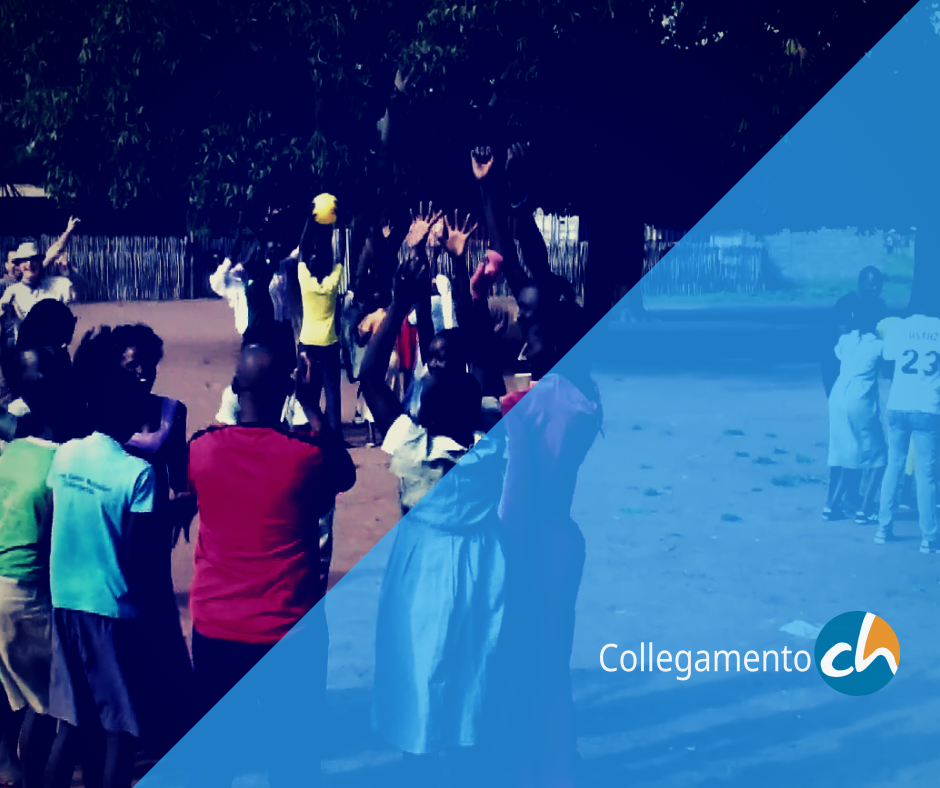
Watch
Beyond competition
The impact of the Sports4Peace program in conflict-ridden East Africa
By Marie Florence Bamvuginyumvira.
The word peace is often on everyone’s lips, a state that most of us long for. According to the dictionary, it means “a state of tranquility, quietness and harmony”. Yet it is difficult to reach, be it worldwide or in our personal environment.
How can we be peacebuilders? Mahatma Gandhi says, “If we are going to bring about peace in the world, we have to begin with the children”. On another occasion, he stated, “You must be the change you want to see in the world”.
Sports4Peace is an initiative that has these principles at its core. It was invented by Austrian sports scientist and Focolare member Alois Hechenberger, who has a PhD in “Play Leadership and Peace Education”. How did he come up with the idea?
“In 2004, during a youth summer camp in Austria, where we faced the problem that many young people were a bit violent, and angry,” he explained. “Even fights broke out during sports and games activities.” After this experience, Hechenberger consulted with the other youth leaders and children about how to minimize this belligerent behavior among the teenagers in the future. Together they decided to focus on helping the children and teens have a positive experience of family and unity.
Since then, the educational approach of “Sports4Peace” has been tried out by Hechenberger in many workshops all over the world. In August and September 2018, Sports4Peace was hosted for six weeks in East Africa. Around 150 animators and teachers from Burundi, Rwanda, Tanzania, Ethiopia, Kenya and South Sudan convened in five different workshops. The climax of each workshop was Sports4Peace festivals prepared by the animators. Over 1,200 children in Kenya, Burundi and South Sudan took part in these events.
Hechenberger worked first with teachers and youth group leaders, based upon his experience that children learn by watching. The adults must be good role models, the first to show respectful behavior. They must balance competitive activities with those that promote cooperation, while looking after the needs of the group. If these leaders have a good experience among themselves, enjoying this spirit of brotherhood, then they are able to engender it in the children entrusted to them.
The program takes off
Sports4Peace uses the interaction during specifically designed games as a method for social learning. Without many words, the players learn in a joyful way, collaboration and trust, be it through simple rope jumping as a group, be it through complex activities like “Team Writing” where players write together a word by individually pulling delicately and silently the ends of strings tied to a marker-pen.
Participating in the team activities, they discovered the strength of collaboration and understood where they had to change. For example, children who were a bit bossy learned to listen to others, and those with a lower self-esteem learned to trust in their abilities.
In war-torn South Sudan the gatherings had a special impact. Christine Ocokoru, an educator, shared, “I learned to be friends with my enemies in different games and toe courageous and a leader myself. I’ve also learned to have more self-esteem and to live a sense of togetherness and cooperation.”
Her colleague Ezekiel gained new hope and courage to face the situation in their society. He said, “I hope we are going to get changes in our country because this place needs peace seriously.”
Emmanuel, a boy from South Sudan, said: “I’ve learned peace and unity.” Elisabeth shared, “I’ve learned how to be honest with everyone”. Linda said, “With all the games, I’ve learned to live as one family with my friends.” They all participated in the Sports4Peace events in the diocese of Rumbek, in the center of the country.
Continue reading on:





